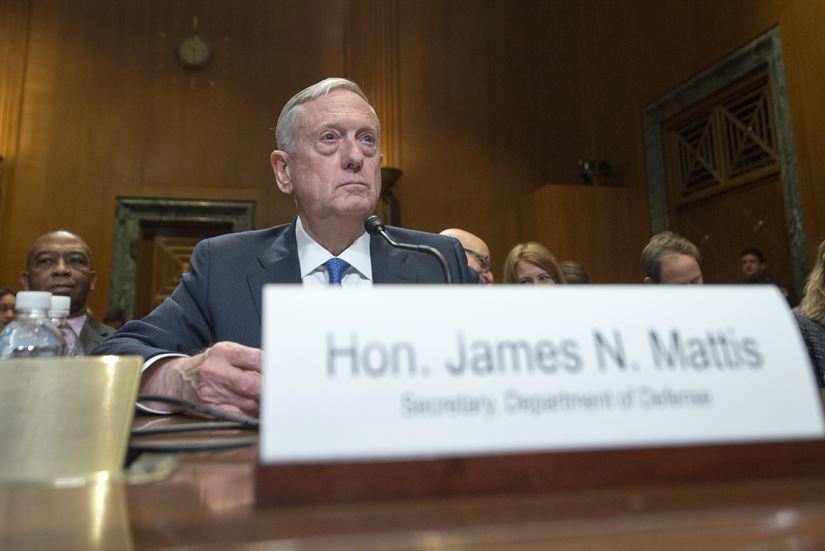Secretary of Defense James Mattis appeared before the Senate Appropriations Subcommittee on Defense on Wednesday to emphasize the importance of President Trump’s proposed $30 billion defense spending increase for fiscal year 2017. Defense Secretary Mattis was joined for the hearing by Marine Corps General and chairman of the Joint Chiefs of Staff, Joe Dunford.
Mattis warned lawmakers that hesitation about investing in the nation’s defense would likely deepen the “strategic mismatch between our future security and the military means to protect our people and freedoms.”
“The security situation facing our country has become more challenging,” Mattis said. “The looming threats have outstripped the level of resources we have been allocating to defense.”
The United States spent $585 billion on defense in 2016, a figure that dwarfs its nearest competitors and accounts for the vast majority of NATO’s operational defense spending. As a result, requests to increase the military’s budget have been met with criticism among Democrats who aren’t pleased with the president’s proposed cuts in order to fund the potential increase. However, top defense officials have long been clamoring for an end to a series of budget cuts known as the sequestration, as they have limited America’s ability to maintain its huge military presence around the world.
Decades of continued combat and civil operations all over the globe, including wars on multiple fronts, have exhausted the military’s ability to continue to function at such a high operational tempo, and a transition in focus away from anti-insurgency and toward near-peer level competitors such as Russia and China have shown a light on a poorly maintained global force in dire need of an influx of cash in order to keep pace with international competitors.
The proposed $30 billion increase is essential to “get our aircraft back in the air, our ships back to sea, and our troops back in the field with refurbished or new equipment and proper training,” the defense secretary said. Budgetary constraints have seen a number of the U.S. Navy’s ships waiting for months or even years for mandatory refitting. Some delays have gone on so long, ships and submarines have had to be pulled from duty until the necessary repairs can take place.
“The department is aware of the sacrifices of the American taxpayers in making the additional funding for fiscal year 2017 possible,” Mattis said. “The department takes the responsibility of being wise stewards seriously.”
According to Mattis, this first budget increase would only be a part of a multi-year effort to bring America’s military back into fighting shape in what could amount to a race against time as tensions between the U.S. and China, Russia, and North Korea continue to increase. As far as the Defense Secretary is concerned, diplomatic negotiation must always be the first priority when dealing with potential foes, but that negotiation can only be conducted if a strong military exists to support it.
“Our military must ensure that the president and our diplomats always negotiate from a position of strength,” he said. “Global threats require a global response, applying the full weight of our own and our allies’ power, allies which are also increasing their defense outlays.”
He went on to list potential threats such as Russia, China, North Korean nuclear efforts and terrorism around the globe as reason to ensure America’s military is well-funded and prepared to fight on behalf of our interests anywhere on the planet.
“This situation calls for our department to maintain a safe and secure nuclear deterrent and a decisive conventional force that can also fight irregular enemies since our military must be able to counter all threats facing us,” Mattis said.
Already have an account? Sign In
Two ways to continue to read this article.
Subscribe
$1.99
every 4 weeks
- Unlimited access to all articles
- Support independent journalism
- Ad-free reading experience
Subscribe Now
Recurring Monthly. Cancel Anytime.
Mattis concluded by acknowledging that lawmakers have some difficult decisions ahead of them if they hope to find ways to fund the defense spending increase while limiting any negative effects that cuts elsewhere could have on the American people.
“With the help of the Congress, I believe we can build a force that is more lethal, without placing an undue burden on the American economy,” he said.
But, in order to do so, he claimed the Defense Department needs a “sustained commitment from Congress in the form of additional funding and regular on-time budgets.”
Image courtesy of the Department of Defense










COMMENTS